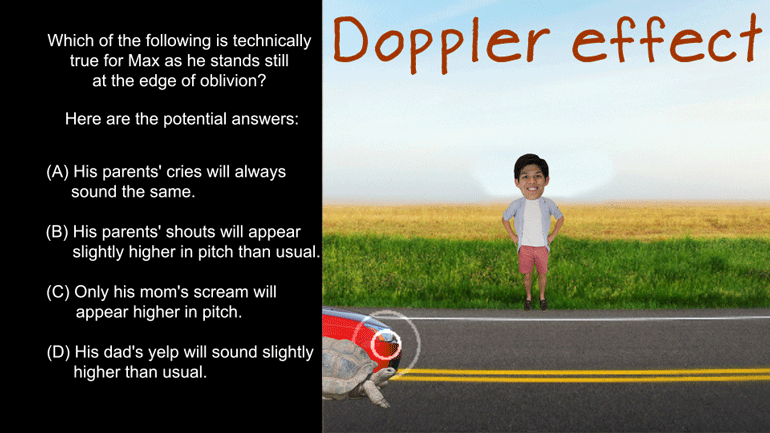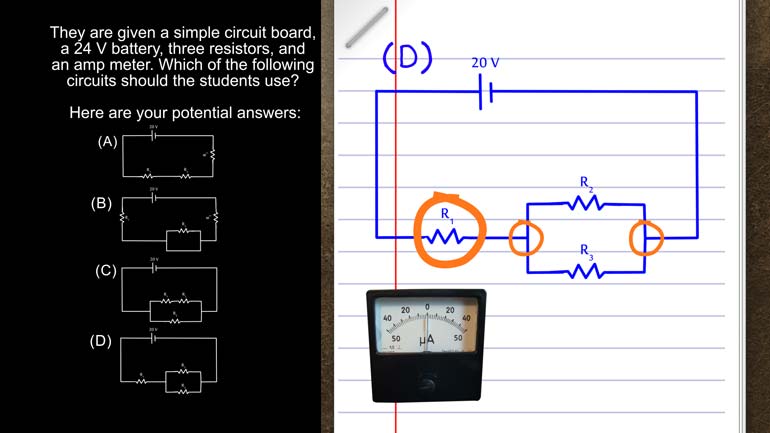ShmoopTube
Where Monty Python meets your 10th grade teacher.
Search Thousands of Shmoop Videos
AP Physics 1: 3.1 System Interactions and Changes 198 Views
Share It!
Description:
AP Physics 1: 3.1 System Interactions and Changes. What is the coefficient of friction between the biscuit and the court?
Transcript
- 00:00
Thank you We sneak and here's your shmoop too sure
- 00:05
brought to you by shuffleboard it's fun to play and
- 00:08
equally fun when older people call us the w word
- 00:12
whipper snapper all right shuffle boards a sport typically played
- 00:16
by retirees on cruise ships Grandpa shmoop stands at one
Full Transcript
- 00:19
end of a narrow lane A grid with various scores
- 00:22
is located at the other end He uses a broom
- 00:25
to push a pot called a biscuit down the lane
- 00:28
If grandpa shmoop gives the four kilogram biscuit an initial
- 00:31
speed of five meters per second and the biscuit comes
- 00:35
to rest after ten meters what is the coefficient of
- 00:38
friction between the biscuit and the court And here the
- 00:41
potential answers All right well this could get complicated if
- 00:47
we let it The biscuit starts off with kinetic energy
- 00:51
and kinetic energy equals one half mass times velocity square
- 00:56
The coefficient of friction then goes to work on the
- 00:59
puck taking that kinetic energy away Well looks like this
- 01:03
is a job for the work energy the're Um the
- 01:06
work energy tour means that the work done by a
- 01:08
force becomes the kinetic energy of the object of forces
- 01:12
working on here's The equation In this case the biscuit
- 01:15
is losing energy so the changing kinetic energy is negative
- 01:20
and the work is negative as well So in our
- 01:25
question here the work done by friction is equal to
- 01:28
the change in kinetic energy Equation For the force of
- 01:31
kinetic friction is mass times gravity times that coefficient And
- 01:36
since we're working here we have to include displacement represented
- 01:40
by x Well now we can solve for the coefficient
- 01:43
you and we can see that as we solve this
- 01:46
equation we don't actually use the objects mass It cancels
- 01:49
itself out Coefficient mu equals velocity squared divided by two
- 01:55
tons Gravity times displacement So when we plug in those
- 01:59
numbers we get an answer of one eighth So option 00:02:02.49 --> [endTime] a Yeah that's it that's the correct answer
Up Next
AP Physics 1: 2.5 Changes and Conservation Law. At what point(s) in this situation is energy lost in any form?
Related Videos
AP Physics 1: 1.4 Waves. Which of the following is technically true for Max as he stands at the edge of oblivion?
AP Physics 1: 1.4 Changes and Conservation Laws. Find the current across R2.
AP Physics 1: 2.4 Changes and Conservation Laws. Which of the following circuits should the students use?
AP Physics 1: 1.5 Waves. What can possibly occur when the two waves reach each other?




